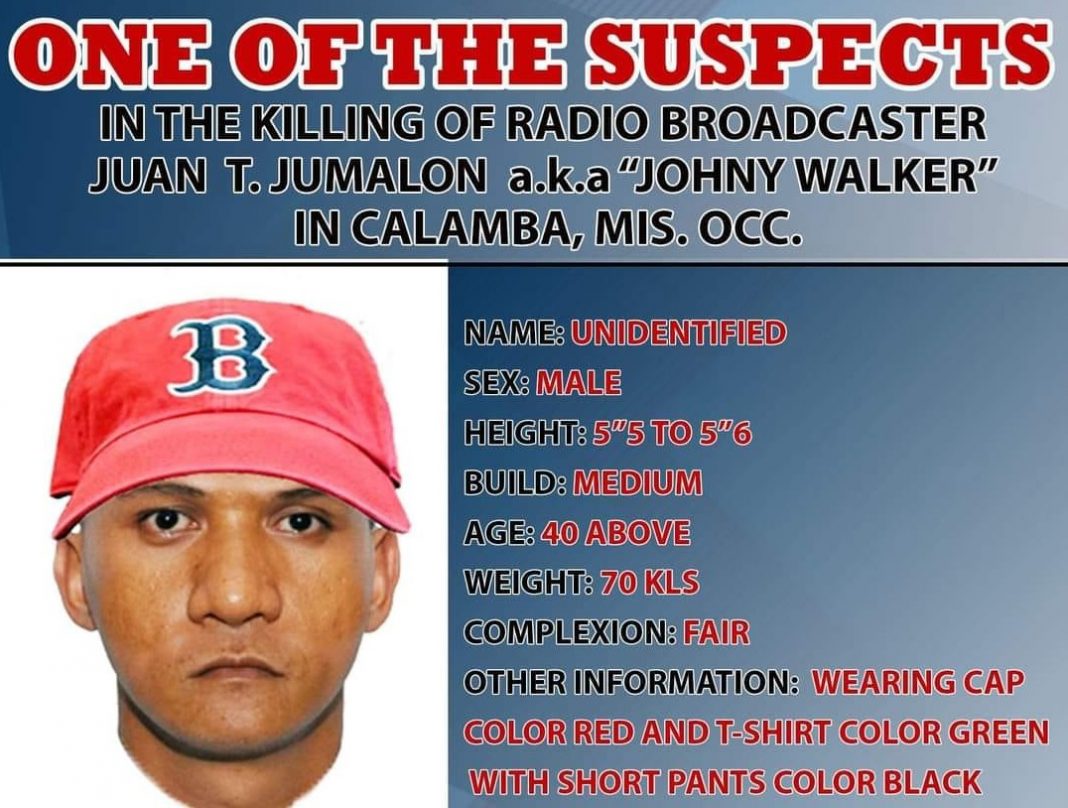Bohol representative Alexie Tutor said standardizing the use of computer-generated images of crime suspects and persons of interest “must happen in our country about forensics, fighting crime, and criminal investigations.”
Tutor said modern technology, such as computer-generated images of crime suspects and persons of interest “necessary to bring our criminal justice system forward into the 21st Century.”
She commended the investigators working on the murder of broadcaster Juan “DJ Johnny Walker” Jumalon in Calamba, Misamis Oriental.
“I am already reviewing a draft of a bill on the establishment of a National Forensics Service as part of a Forensic Sciences and Services Authority of the Philippines under the Department of Science and Technology,” Tutor said.
“The bill envisions a bureau comprised of forensic investigators licensed or certified or both in the specializations of forensics, including but not limited to forensic pathology, forensic accounting and auditing, and electronic or digital forensics,” she added.
Tutor said the draft bill provides that the envisioned Forensic Sciences and Services Authority of the Philippines have the following mandates and powers:
- Regulatory, visitorial, inspectorate, standards setting, certification, and process and systems audit authority over all crime laboratories, scene of the crime operations units, and evidence storage and preservation facilities nationwide, including funeral parlors and morgues.
- Be the exclusive national network for integrated, scientific, technical, research, and specialized services center for the forensic sciences, crime analysis, crime scene investigation, incident and accident investigation, and criminal justice research.
- Assemble and employ into its organization highly competent scientists, professionals, and specialists. It shall establish and operate DNA laboratories, a national training academy for the forensic and allied sciences, and set minimum standards and benchmarks for the accreditation and certification of forensic investigation practitioners and service providers.
- Establish and operate evidence storage and preservation facilities for criminal, civil, administrative, court, and legal proceedings and purposes. It shall also set standards, accredit, certify, and maintain registries of: (1) privately-owned forensic laboratories and investigation services; (2) morgues, crematoriums, and funeral parlors and their personnel; (3) gun owners, and gun clubs; and (4) importers, manufacturers, assemblers, and integrators of firearms, ammunition, explosives; and (5) chemicals and devices.
- Maintain comprehensive, integrated, and secure databases necessary for its mission and services.
- In tandem with the Commission on Higher Education, promote and advance the forensic and allied sciences with the establishment of internationally benchmarked minimum and progressing standards and the offering of degree and non-degree programs in higher education institutions.
- In partnership with the Department of Foreign Affairs, Professional Regulation Commission, and the relevant professional regulatory boards and leading experts to foster the progressive development of forensic science and allied fields through multidisciplinary and international collaboration with the leading institutions, organizations, and authoritative luminaries. They shall also collaborate on submitting to Congress draft legislation and recommendations on laws and standards for the forensic professions and allied fields.




